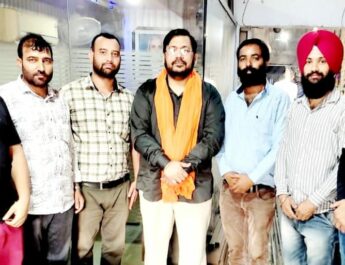From Our Bureau
NEW DELHI: A group of retired bureaucrats, who served the nation as IAS, PS and IFS officers, on Saturday wrote an open letter to the Chief Justice of India as the Constitutional Conduct Group (CCG) to reverse the Gujarat government’s decision to set free 11 men convicted and jailed in the ghastly case of gang rape of 5-month pregnant 19-year old Bilkis Bano and murder of her family members in the riots that took place in Gujarat in 2002 outraging the nation.
The Supreme Court is to hear a PIL against the culprits’ release after two weeks and probably the case will be listed before new CJI Uday Umesh Lalit as the previous CJI Ramana had issued a 2-week notice to the state government.
“We write to you because we are deeply distressed by this decision of the Government of Gujarat and because we believe that it is only the Supreme Court which hs the prime jurisdiction, and hence the responsibility, to rectify this horrendously wrong decision,” reads the 4-page letter.
The CCG members said they have no affiliation with any political party, but committed to the values enshrined in the Constitution and the judicial process that is protected by it.
The signatories include former foreign secretary Sujatha Singh, former NHRC secretary general PDD Thomas, former secretary National Commission for Minorities Tirlochan Singh, former Social Justice and Empowerment secretary Anita Agnihotri, former Rajasthan chief secretary Salahuddin Ahmad, former Punjab DGP Mohinder Pal Aulakh, former Punjab chief secretary Ramesh Inder Singh, former MP chief secretary Sharad Behar, former Cabinet Secretary K M Chandrasekhar, former Ambassador to Portugal Madhu Bhaduri, former ambassador to Finland and Estonia Ashok Kumar Sharma, former Ambassador to Indonesia Navrekha Sharma, former ambassador to Japan Aftab Seth, and former J&K chief secretary rank Hindal Tyabji.
“So influential were the persons accused of this ghastly crime and so politically fraught was the issue that not only had the case to be investigated by the CBI instead of the Gujarat Police, but it also had to be transferred from Gujarat to a special CBI court in Mumbai, to ensure a fair trial, because of the death threats to Bilkis Bano. In January 2008, the Special CBI court in Mumbai sented 11 accused to life imprisonment on the charges of gang rape and murder of seven members of Bilkis Bano’s family,” they wrote.
They referred to accused Radheshyam Shah, after serving 15 years in jail, for a premature release, which was earlier rejected by the Gujarat government. On May 13, 2022, the Supreme Court held that since the crime was committed in Gujarat, the state of Gujarat was the appropriate government to examine his application.
“Surely, going by the past history of the case and collusion of the state officials with the perpetrators of the crime that ws apparent, this case should have been dealt with differently,” they stressed, pointing out the judicial precedent in the Constitution bench judgment of December 2, 2015 in the Sriharan alias Murugan case that the appropriate government to decide the issue shall be the state government where the conviction took place, which in the instant case would be the state of Maharashtra.
They said unfortunately the precedent laid down by the Constitution in V Sriharan’s case was not followed in May 13 judgment that ordered that the application for premataure release be considered within two months, in terms of its policy dated 9 July 1992.
“We are puzzled why the Supreme Court saw the matter so urgent that a decision be taken within two months and that too under Gujarat’s 1992 remission policy and not its current one,” they said, adding that “surely the Supreme Court could not be aware of the major changes in the punishment for rape and murder and the policy of remission made more severe in 2014 after the Nirbhaya case.”
They urged the CJI to rescind the remission order of the Gujarat government and send the 11 persons convicted back to jail to serve out their life sentence in view of the glaring deviations from the established law as their release had a chilling impact not only on Bilkis Bano and her family but also for the safety of all women in India, especially those who beling to minority and vulnerable communities.”





